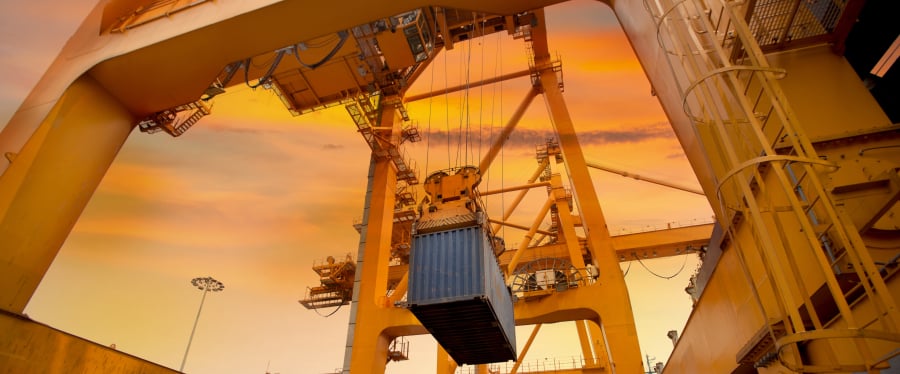
After several public and private investments directed to the waterway sector, the ports have increased their activities regarding the displacement of products and services in recent years. According to Statista data, world seaborne trade has been growing in volume since 1990. Between 1990 and 2020, the volume of cargo transported by ships has more than doubled, from 4 to nearly 10.7 billion tons.
However, this intensification of activities in the sector makes a challenge evident: the ports still lack skilled and instrumented leaders to develop good port management and logistics.
For this reason, the results obtained end up being lower than expected, even in an optimistic scenario. In this context, it is essential for companies in the segment to develop actions to improve their management, to provide the extraction of the best possible results.
And this is exactly the theme of our article today. Read on to understand the importance of technology in port management!
Maritime transport was the first mode of international trade on a global scale. With hundreds of years of history, port management techniques have evolved as new naval and communication technologies have developed.
However, factors associated with the intensification of trade and the leadership of certain nations in the imports and exports of certain products are also determining factors for the establishment of techniques capable of producing the best results. In this scenario, modern port management must rely on systems capable of collecting, managing, and reporting an unprecedented volume of data from the various administrative and operational fronts of the business.
The first step towards more efficient port management is to implement good planning of the organizational processes. In other words, it is necessary to map all the information and operations that are involved in port activities and outline the best strategies and action plans to adapt the business model and prepare the company for constant market transformations.
In this context, it is essential to have well-defined objectives concerning the goals and development plans of the port. This allows efforts to always be directed in the right direction of growth, besides foreseeing potential problems and simulating scenarios to guide decision-making.
And that is where technology comes into play in port management. Having tools that record and automate processes makes the visualization of the history of transactions and operations more efficient, basing the management on real and objective data that help in determining the next steps.
The port challenges are many. Bureaucracy to adapt to government requirements, maintenance and improvement of infrastructure, legal issues specific to the goods transported, implementation of intermodal infrastructure, training and safety of teams, storage of assets, transport logistics, and environmental issues are among some of the most latent problems faced daily.
Recording the actions taken to intervene in each of these areas and understanding how they impact the health of the business is indispensable for port development. And by having specific software and systems to monitor activities, it is possible to optimize the resolution of these and other vital issues.
Firstly, because the technologies allow all the information relevant to port management to be concentrated in a single place. Second, having a system that automates processes and integrates workflows helps reduce the error rate and increase the productivity of the teams.
Another crucial factor is that the implementation of technologies to improve port management is a crucial step toward visualizing how resources are applied. This makes it possible to direct investments to priority areas, enhancing their returns.
In this scenario, one of the most prominent technological solutions is a software specialized in cost and profitability management. They create the basis to make the port more efficient and attract investments and business through the allocation of resources in an intelligent way, capable of propitiating the development of the port.
MyABCM has a solution focused on the port segment that can offer several functionalities to the manager:
Find out about My Ports.
Want to know how a system like this can transform the results of port management? Contact our consultants using the form below.
Request a demo bellow and know what MyABCM can do for your company.
If you are interested in MyABCM solutions and need more information, please send us a message.